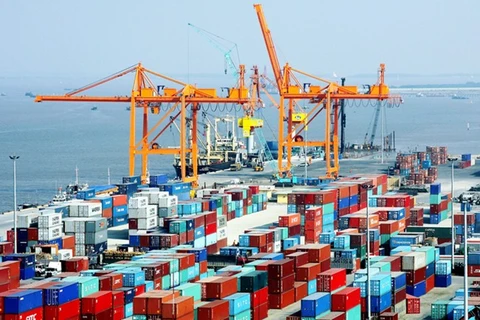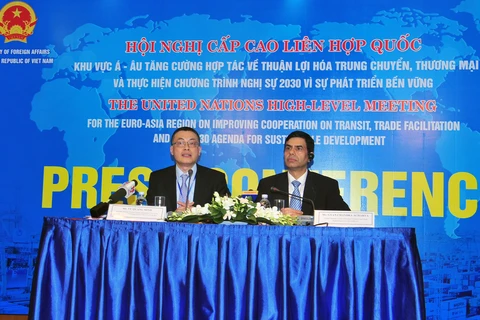HCM City (VNA) – To ensure the implementation of the WTO’s Trade Facilitation Agreement (TFA), Vietnam needs an effective inter-agency coordination mechanism for administrative reform, experts said at a TFA seminar held in Ho Chi Minh City on March 29.
Highlighting the far-reaching impacts the FTA has on more than 100 WTO members, Director of the Vietnam General Department of Customs’ International Cooperation Department Nguyen Toan said before and after Vietnam taking part in the pact, the customs body has carried out several shakeups with sound outcomes.
However, the country has yet to fulfill its FTA commitments due to various reasons, one of which was the overload of work for the customs sector while it has limited power and personnel.
External factors, such as frequently changing requirements for supply chains, production methods, transport and trade, have also created difficulties to Vietnam’s import-export procedures, Toan added.
Au Anh Tuan, deputy director of the Supervision and Control Department at the General Department of Customs, said there is a gap between regulations and their implementation in Vietnam, noting that while the country’s legal documents and regulations are basically compatible with TFA standards but their implementation fails to match requirements.
He attributed the problem to human causes, including limited competence and vested interest, and suggested administrative reform to facilitate trade must go hand in hand with boosting personnel capacity and balancing benefits among groups.
Sharing the same view, Pham Minh Duc, a World Bank senior economic expert, pointed to the fact that administrative procedures for granting licences, sector verification, and border trade management consume 76 percent of the total time for import-export –related work, while the time for goods examination and customs clearance accounts for only 19 percent.
The fact means customs procedure reform alone is not enough to improve trade facilitation activities in Vietnam, he noted, adding that the involvement of both state agencies and businesses in the process is needed.
The FTA took effect on February 22, expecting to cut 14.3 percent of trade costs and increase global trade by up to 1 trillion USD each year.-VNA
VNA























